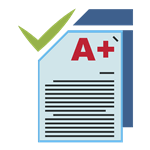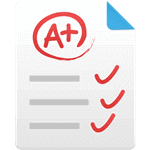 In the vast landscape of academic research and scholarly pursuits, the literature review stands as a critical pillar, serving as the foundation upon which new knowledge is built. It is the compass that guides researchers through the uncharted waters of existing literature, helping them to navigate the complex maze of ideas, theories, and findings. However, writing an effective literature review is no easy task; it requires precision, organization, and a deep understanding of the subject matter. That's where the quest for the best assistance begins. In this digital age, where information is abundant but discerning the relevant from the irrelevant is challenging, seeking guidance in structuring a literature review becomes paramount. Whether you are a seasoned researcher looking to enhance the coherence and impact of your review, or a novice embarking on your academic journey, you will find solace at Literature Review Help Here, we offer a sanctuary of knowledge organization, a haven for clarity, and a sanctuary for critical thinking. Our mission is to empower researchers with the tools and techniques they need to craft literature reviews that are not just informative, but transformative. With us, you will understand the art of structuring a literature review and uncovering the secrets to constructing a review that is both comprehensive and compelling.
In the vast landscape of academic research and scholarly pursuits, the literature review stands as a critical pillar, serving as the foundation upon which new knowledge is built. It is the compass that guides researchers through the uncharted waters of existing literature, helping them to navigate the complex maze of ideas, theories, and findings. However, writing an effective literature review is no easy task; it requires precision, organization, and a deep understanding of the subject matter. That's where the quest for the best assistance begins. In this digital age, where information is abundant but discerning the relevant from the irrelevant is challenging, seeking guidance in structuring a literature review becomes paramount. Whether you are a seasoned researcher looking to enhance the coherence and impact of your review, or a novice embarking on your academic journey, you will find solace at Literature Review Help Here, we offer a sanctuary of knowledge organization, a haven for clarity, and a sanctuary for critical thinking. Our mission is to empower researchers with the tools and techniques they need to craft literature reviews that are not just informative, but transformative. With us, you will understand the art of structuring a literature review and uncovering the secrets to constructing a review that is both comprehensive and compelling.
The role of a well-organized literature review in your project
A well-organized literature review plays an essential role in any project, serving as its intellectual backbone. It provides a comprehensive overview of existing knowledge, helping to identify gaps, trends, and areas of controversy or consensus within the subject matter. This foundation of knowledge ensures that the project is built upon a solid understanding of prior research, preventing the reinvention of the wheel and promoting originality. Furthermore, a well-structured chapter aids in framing research questions and hypotheses. It guides the project's direction by highlighting relevant theories, methodologies, and variables. This not only streamlines the research process but also enhances its quality and rigor. Moreover, the literature review supports critical thinking and analytical skills, fostering a deeper understanding of the subject matter. It enables the researcher to synthesize, compare, and evaluate diverse sources, helping to construct a coherent narrative that contextualizes the project within the broader academic discourse. Fundamentally, a well-organized write-up is a compass that guides a project toward relevance, originality, and academic integrity, ensuring that it contributes meaningfully to the field and stands on the shoulders of prior scholarship.
How our experts can help you structure your lit review for a cohesive narrative
Our experts can play a pivotal role in structuring your literature review to ensure a cohesive narrative by employing their deep knowledge and experience in academic writing and research. We offer the best literature review structuring help, as our experts are skilled and qualified. They will begin by conducting a comprehensive review of the existing literature and identifying key themes, theories, and gaps in the research. Also, they will assist in organizing the literature into logical categories, helping you create a framework that flows seamlessly from one section to the next. This framework will allow for a clear progression of ideas, making it easier for readers to follow your argument. Moreover, our experts can help you synthesize the information gathered from various sources, highlighting the connections and contradictions within the literature. They will ensure that each section of your literature review builds upon the previous one, leading to a coherent and well-structured narrative. Through careful guidance and feedback, our experts will help you craft transitions, integrate citations effectively, and maintain a consistent writing style, resulting in a literature review that not only showcases your understanding of the field but also tells a compelling and cohesive story about the state of research in your chosen topic.
 The art of creating an effective chapter two is a critical skill in the realm of academic and research endeavors. As we have explored the significance of a well-structured RRL and its impact on the overall quality of scholarly work, it becomes evident that seeking the best help and employing the best design strategies is essential. A meticulously structured chapter not only serves as a foundation for any research project but also offers a roadmap for navigating the complex landscape of existing knowledge. It allows researchers to identify gaps in current literature, build upon established theories, and contribute new insights to their respective fields. Moreover, it plays a pivotal role in establishing the credibility and authority of a research paper or thesis. To ensure the best design, one must consider the quality of sources, relevance to the research topic, and the systematic arrangement of ideas. Whether you are a student embarking on a research project or a seasoned scholar refining your work, seeking assistance from experts in literature review structuring can be a game-changer. Basically, the pursuit of excellence in RRL structuring is an investment in the success of your academic and research pursuits. By adhering to best practices and enlisting professional help when needed, you can elevate the impact and scholarly rigor of your work, contributing meaningfully to the advancement of knowledge in your chosen field.
The art of creating an effective chapter two is a critical skill in the realm of academic and research endeavors. As we have explored the significance of a well-structured RRL and its impact on the overall quality of scholarly work, it becomes evident that seeking the best help and employing the best design strategies is essential. A meticulously structured chapter not only serves as a foundation for any research project but also offers a roadmap for navigating the complex landscape of existing knowledge. It allows researchers to identify gaps in current literature, build upon established theories, and contribute new insights to their respective fields. Moreover, it plays a pivotal role in establishing the credibility and authority of a research paper or thesis. To ensure the best design, one must consider the quality of sources, relevance to the research topic, and the systematic arrangement of ideas. Whether you are a student embarking on a research project or a seasoned scholar refining your work, seeking assistance from experts in literature review structuring can be a game-changer. Basically, the pursuit of excellence in RRL structuring is an investment in the success of your academic and research pursuits. By adhering to best practices and enlisting professional help when needed, you can elevate the impact and scholarly rigor of your work, contributing meaningfully to the advancement of knowledge in your chosen field.
Help with Designing a Lit Review | Chapter 2 Content Outline
 In the realm of academic research and project development, Chapter 2, remains a critical pillar upon which the entire edifice of your work is constructed. This chapter is not just a collection of references and summaries but a strategic roadmap that guides your project towards its ultimate destination. Creating an effective chapter is both an art and a science, demanding meticulous attention to detail, a discerning eye for relevant literature, and the ability to weave a compelling narrative. Understanding the significance of this chapter, we stand ready to offer you our expertise and unwavering help to design a literature review that not only meets but exceeds the highest scholarly standards. Our commitment to providing reliable assistance is underpinned by a deep understanding of the intricacies involved. As you embark on your academic journey, we recognize that navigating the vast sea of literature, synthesizing relevant sources, and structuring your review can be a daunting task. That's where we step in, armed with a team of seasoned experts who possess a wealth of experience in various fields and domains. We understand the nuances of different research methodologies, the latest trends in academic discourse, and the importance of critical analysis. In this endeavor, we aim to be your trusted partner, working hand in hand to curate a review that not only establishes the context of your research but also showcases your ability to engage with and contribute to the scholarly conversation. Let us provide you with reliable lit review organizing help and see the difference we bring.
In the realm of academic research and project development, Chapter 2, remains a critical pillar upon which the entire edifice of your work is constructed. This chapter is not just a collection of references and summaries but a strategic roadmap that guides your project towards its ultimate destination. Creating an effective chapter is both an art and a science, demanding meticulous attention to detail, a discerning eye for relevant literature, and the ability to weave a compelling narrative. Understanding the significance of this chapter, we stand ready to offer you our expertise and unwavering help to design a literature review that not only meets but exceeds the highest scholarly standards. Our commitment to providing reliable assistance is underpinned by a deep understanding of the intricacies involved. As you embark on your academic journey, we recognize that navigating the vast sea of literature, synthesizing relevant sources, and structuring your review can be a daunting task. That's where we step in, armed with a team of seasoned experts who possess a wealth of experience in various fields and domains. We understand the nuances of different research methodologies, the latest trends in academic discourse, and the importance of critical analysis. In this endeavor, we aim to be your trusted partner, working hand in hand to curate a review that not only establishes the context of your research but also showcases your ability to engage with and contribute to the scholarly conversation. Let us provide you with reliable lit review organizing help and see the difference we bring.
Chapter 2's content outline essentials for a strong write-up
Chapter two of a research paper is a critical component of any scholarly work. A strong review serves as the foundation for your research, providing context, highlighting gaps in existing knowledge, and demonstrating your understanding of relevant prior research. Here are the essential components for a strong literature review outline:
- The Introduction: Begin by introducing the purpose and significance of the literature review. Explain how it connects to your research objectives and questions.
- Scope and Purpose: Clearly define the scope of your literature review, specifying the key themes, topics, and research questions it will address.
- Search Strategy: Describe the methods and sources you used to search for relevant literature, including databases, keywords, and inclusion/exclusion criteria.
- Synthesis of Key Findings: Summarize the key findings and concepts from the selected literature. Organize them thematically or chronologically, highlighting the most relevant and recent studies.
- Conceptual Framework: Develop a conceptual framework or model that integrates the key concepts and theories from the literature to guide your research.
- Gaps and Limitations: Identify gaps in the existing literature and any limitations in the research methodologies of previous studies.
- Theoretical Framework: Discuss any theoretical frameworks that underpin your research and explain how they relate to the literature reviewed.
- Methodological Approach: Briefly outline the research methods you will use to address the gaps identified in the literature.
- A Conclusion: Summarize the main points of the literature review and emphasize its significance in shaping your research. Discuss how it informs your research questions and hypotheses.
- References: Provide a comprehensive list of all the sources cited in the literature review, following a consistent citation style (e.g., APA, MLA).
Our experts can help you organize your chapter from chaos to clarity
Our experts specialize in transforming chaotic chapters into clear, organized, and impactful content. By offering reliable Help with Designing a Lit Review, this is how we can assist you:
- Content Structuring: Our experts will analyze your chapter's existing content and restructure it for maximum clarity. They'll help you identify key themes, main points, and supporting details, ensuring a logical flow of ideas.
- Outline Creation: We'll work with you to develop a comprehensive outline that serves as a roadmap for your chapter. This outline will provide a clear framework, making it easier to organize your thoughts and information.
- Editing and Proofreading: Our experts will meticulously edit and proofread your chapter, addressing issues like grammar, spelling, and coherence. This step ensures that your content is not only well-organized but also polished and error-free.
- Visual Aids: If applicable, our team can suggest and create visual aids such as charts, graphs, or illustrations to complement your content and enhance comprehension.
- Formatting and Design: Our experts can assist with formatting and design considerations, ensuring that your chapter is visually appealing and easy to navigate.
- Custom Solutions: We understand that each chapter is unique. Our experts tailor their approach to your specific needs, whether you're writing a book, research paper, or any other type of document.
 The process of designing Chapter II of your research project is a foundational step that should not be underestimated. A carefully made review serves as the backbone of your study, providing the context, theoretical framework, and empirical foundation necessary to support your research objectives and hypotheses. We have emphasized the importance of clarity, organization, and relevance when outlining the content of your review. By adhering to a structured framework and focusing on key components such as the introduction, theoretical framework, key themes, and synthesis of existing literature, you can ensure that your work not only informs your research but also demonstrates your understanding of the current state of knowledge in your field. Furthermore, seeking our Chapter 2 writing guidance, utilizing academic databases, and employing effective research strategies will enable you to identify and incorporate relevant sources into your literature review. Remember that a well-executed review not only showcases your expertise but also contributes to the overall credibility and rigor of your research. Designing a literature review is a meticulous process that requires careful planning, dedication, and a commitment to excellence. With the right approach and resources at your disposal, you can craft a review that not only meets the expectations of your research committee but also adds value to the academic discourse in your area of study.
The process of designing Chapter II of your research project is a foundational step that should not be underestimated. A carefully made review serves as the backbone of your study, providing the context, theoretical framework, and empirical foundation necessary to support your research objectives and hypotheses. We have emphasized the importance of clarity, organization, and relevance when outlining the content of your review. By adhering to a structured framework and focusing on key components such as the introduction, theoretical framework, key themes, and synthesis of existing literature, you can ensure that your work not only informs your research but also demonstrates your understanding of the current state of knowledge in your field. Furthermore, seeking our Chapter 2 writing guidance, utilizing academic databases, and employing effective research strategies will enable you to identify and incorporate relevant sources into your literature review. Remember that a well-executed review not only showcases your expertise but also contributes to the overall credibility and rigor of your research. Designing a literature review is a meticulous process that requires careful planning, dedication, and a commitment to excellence. With the right approach and resources at your disposal, you can craft a review that not only meets the expectations of your research committee but also adds value to the academic discourse in your area of study.












 Writing is a crucial skill for researchers and scholars across various disciplines. This process serves as the foundation upon which sound research is built, providing a comprehensive understanding of existing knowledge in a given field. With our guidance, researchers can ensure that their reviews are not only well-organized but also effective in supporting their research objectives. A well-structured RRL begins with a clear research question and an exhaustive search for relevant sources. It involves critical analysis and synthesis of existing literature, highlighting key themes, trends, and gaps in knowledge. Proper citation and referencing are essential to maintain academic integrity and acknowledge the contributions of previous scholars. Furthermore, the organization of the review, whether chronological, thematic, or methodological, should align with the research objectives and enhance the overall coherence of the narrative. Continuous revision and refinement are essential to produce a polished and insightful review. In the era of information abundance, a well-structured review not only adds credibility to research but also serves as a valuable resource for other scholars and practitioners in the field. Mastering this skill is an essential step towards contributing meaningfully to the ever-evolving body of knowledge in any discipline.
Writing is a crucial skill for researchers and scholars across various disciplines. This process serves as the foundation upon which sound research is built, providing a comprehensive understanding of existing knowledge in a given field. With our guidance, researchers can ensure that their reviews are not only well-organized but also effective in supporting their research objectives. A well-structured RRL begins with a clear research question and an exhaustive search for relevant sources. It involves critical analysis and synthesis of existing literature, highlighting key themes, trends, and gaps in knowledge. Proper citation and referencing are essential to maintain academic integrity and acknowledge the contributions of previous scholars. Furthermore, the organization of the review, whether chronological, thematic, or methodological, should align with the research objectives and enhance the overall coherence of the narrative. Continuous revision and refinement are essential to produce a polished and insightful review. In the era of information abundance, a well-structured review not only adds credibility to research but also serves as a valuable resource for other scholars and practitioners in the field. Mastering this skill is an essential step towards contributing meaningfully to the ever-evolving body of knowledge in any discipline. Does your work Require Rewriting Help?
Does your work Require Rewriting Help?